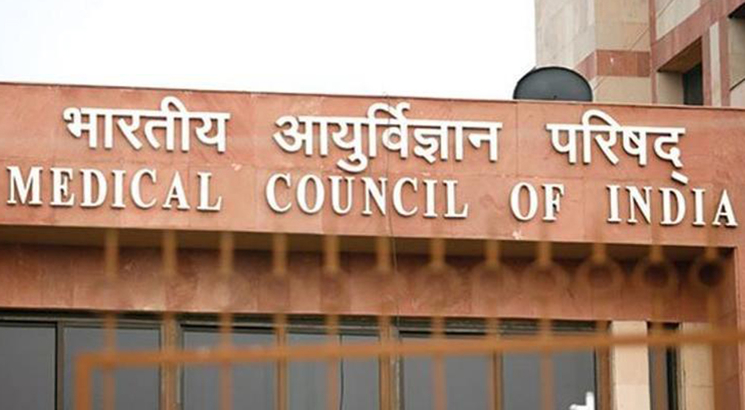MBBS syllabus to be renewed, NEET unlikely to be held twice
Somesh S Menon | August 11, 2018 | 10:48 AM IST | 4 mins read

NEW DELHI, August 10: The Medical Council of India (MCI) is set to overhaul the syllabus for the MBBS course in India from the 2019 academic session onwards. As per media reports, the new syllabus will be released publicly within a month, tentatively by September 2018.
Steps to renew the MBBS curriculum have long been in the pipeline with the MCI establishing six training centres and six sub-training centres across the country for this purpose last year. It is estimated that 40,000 faculty members from Government and Private medical colleges as well as Deemed and Central Universities were trained in these centres.
While the ‘Graduate Medical Education Regulations (1997)’ clearly state that “the importance of the community aspects of health care and of rural health care services is to be recognized. This aspect of education & training of graduates should be adequately recognized in the prescribed curriculum”, it was realised that the current syllabus was insufficient in training MBBS students well enough to practice until they achieved specialisation and this led to a detrimental effect on the doctor-patient ratio in the country.
With revisions being introduced after a considerable gap, the updated MBBS syllabus is now expected to be competency-based and will provide medical undergraduates with clinical experience from the first year itself, a change long awaited by students and doctors alike. Until now, students were trained to treat patients from the third year of MBBS course.
Also, since the focus is now expected to be on the skill development of medical undergraduates, the amendment will lead to the inclusion of a two-month foundation course for all MBBS students. Students are now expected to be provided dedicated training with regard to the national healthcare structure, medico-legal issues, professional development and communication skills. The revised curriculum will introduce information on new diseases and the subjects which are not required in general practice will be removed. The new curriculum will be uniform throughout the country.
The transdisciplinary approach of the new curriculum is expected to bring about a strong hold on important subjects with students being allowed to study them in relation to each other instead of getting knowledge about each in isolation. Among the topics to be introduced, emphasis has been placed on teaching control of non-communicable diseases and vector-borne diseases. Other new topics proposed in the module include those related to gender sensitivity, sex, mental stress, behaviourism sciences.
NEET may be held only once next year
While the Medical Council of India is trying its best to ensure it leaves behind a modern legacy of medical studies for the country in its final days before it is replaced by the National Medical Commission (NMC), other efforts of the Government towards modernising medical education, primarily by improving the selection process for MBBS courses, seems to have hit a roadblock.
The National Eligibility cum Entrance Test (NEET), the All India level undergraduate medical entrance determining admissions to more than 90% of the MBBS courses in the country, was touted to receive much-needed modifications with the establishment of the National Testing Agency (NTA) earlier this year. As had been declared by the Union Minister for Human Resource Development, Prakash Javadekar, in March 2018, the NTA was set to replace the Central Board of Secondary Education (CBSE) as the existing NEET conducting body. Apart from this, the involvement of the NTA was expected to lead to a complete overhaul of the NEET exam pattern, with the exam scheduled to be conducted as a Computer Based Test (CBT) and in two sessions (one in February and one in May) from 2019 onwards, changes which were announced with much fanfare by Javadekar in July.
However, if the latest rumours emanating from the HRD ministry are to be believed, it is likely that the current pen-paper mode of the exam will continue into 2019 at the very least, and the exam may once again be held in one session only. As per media reports, the reasons for not changing the ‘status quo for the undergraduate medical entrance’ are due to concerns expressed by the Ministry of Health and Family Welfare (MoHFW) about a CBT being more difficult for students from rural areas or disadvantaged backgrounds. It also complained about the public announcement in July on NEET being conducted by the NTA had been made by the MHRD ‘without formal consultation’. A total of eight problems were pointed out by the Health Ministry with regard to the proposed changes to NEET, including concerns around students being able to balance their Board preparations while preparing for the exam.
While the postponement of NTA’s involvement in NEET 2019 may come as an embarrassing setback to the MHRD, it is expected that students who had already commenced their preparations for NEET 2019 may well be satisfied in appearing for the exam in its existing format.
Follow us for the latest education news on colleges and universities, admission, courses, exams, research, education policies, study abroad and more..
To get in touch, write to us at news@careers360.com.